
The British Army is the principal land warfare force of the United Kingdom, a part of the British Armed Forces along with the Royal Navy and the Royal Air Force. As of 1 April 2023, the British Army comprises 77,536 regular full-time personnel, 4,179 Gurkhas, 27,194 volunteer reserve personnel and 4,530 "other personnel", for a total of 113,439.

The British Armed Forces, formally known as His Majesty's Armed Forces, are the military forces responsible for the defence of the United Kingdom, its Overseas Territories and the Crown Dependencies. They also promote the UK's wider interests, support international peacekeeping efforts and provide humanitarian aid.

Children have been recruited for participation in military operations and campaigns throughout history and in many cultures.

Liberty, formerly, and still formally, called the National Council for Civil Liberties (NCCL), is an advocacy group and membership organisation based in the United Kingdom, which challenges unjust laws, protects civil liberties and promotes human rights. It does this through the courts, in Parliament and in the wider community. Liberty also aims to engender a "rights culture" within British society. The NCCL was founded in 1934 by Ronald Kidd and Sylvia Crowther-Smith, motivated by their humanist convictions.

The Royal Army Chaplains' Department (RAChD) is an all-officer department that provides ordained clergy to minister to the British Army.

The Princess Royal Barracks, Deepcut, commonly referred to as Deepcut Barracks, is a former British Army installation near Camberley, Surrey. It was the headquarters of the Royal Logistic Corps (RLC) and also the Defence College of Logistics, Policing and Administration, before both moved to Worthy Down Camp.

The British Army came into being with the unification of the Kingdoms of England and Scotland into the Kingdom of Great Britain in 1707. The new British Army incorporated Regiments that had already existed in England and Scotland. The Army has traditionally relied on volunteer recruits, the only exceptions to this being during the latter part of the First World War until 1919, and then again during the Second World War when conscription was brought in during the war and stayed until 1960.
Counter-recruitment refers to activity opposing military recruitment, in some or all of its forms. Among the methods used are research, consciousness-raising, political advocacy and direct action. Most such activity is a response to recruitment by state armed forces, but may also target intelligence agencies, private military companies, and non-state armed groups.

Military recruitment refers to the activity of attracting people to, and selecting them for, military training and employment.

Operation Banner was the operational name for the British Armed Forces' operation in Northern Ireland from 1969 to 2007, as part of the Troubles. It was the longest continuous deployment in British military history. The British Army was initially deployed, at the request of the unionist government of Northern Ireland, in response to the August 1969 riots. Its role was to support the Royal Ulster Constabulary (RUC) and to assert the authority of the British government in Northern Ireland. This involved counter-insurgency and supporting the police in carrying out internal security duties such as guarding key points, mounting checkpoints and patrols, carrying out raids and searches, riot control and bomb disposal. More than 300,000 soldiers served in Operation Banner. At the peak of the operation in the 1970s, about 21,000 British troops were deployed, most of them from Great Britain. As part of the operation, a new locally-recruited regiment was also formed: the Ulster Defence Regiment (UDR).
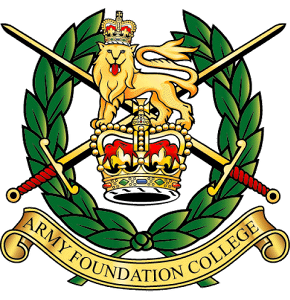
The Army Foundation College (AFC) is located in Harrogate, North Yorkshire, England. It is the only British Army establishment that delivers initial military training to Junior Soldiers.
The Military Covenant or Armed Forces Covenant is a term introduced in 2000 into British public life to refer to the mutual obligations between the United Kingdom and the British Armed Forces. According to The Guardian, "it is an informal understanding, rather than a legally enforceable deal, but it is nevertheless treated with great seriousness within the services". It was coined in Soldiering – The Military Covenant (booklet), UK: Ministry of Defence, April 2000, and has now entered political discourse as a way of measuring whether the government and society at large have kept to their obligations to support members of the armed forces.
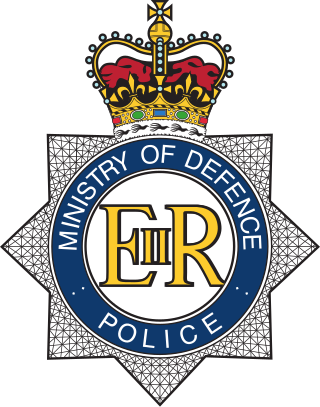
The Ministry of Defence Police (MDP) is a civilian special police force which is part of the United Kingdom's Ministry of Defence. The MDP's primary responsibilities are to provide armed security and counter terrorism services to designated high-risk areas, as well as uniformed policing and limited investigative services to Ministry of Defence property, personnel, and installations throughout the United Kingdom. The MDP are not military police and should not be confused with the Royal Military Police or any other British Service Police. Service personnel often refer to the MDP by the nickname "MOD plod".
Gay and lesbian citizens have been allowed to serve openly in His Majesty's Armed Forces since 2000. The United Kingdom's policy is to allow lesbian, gay, bisexual, transgender, and queer (LGBTQ) personnel to serve openly, and discrimination on a sexual orientation basis is forbidden. It is also forbidden for someone to pressure LGBT people to come out. All personnel are subject to the same rules against sexual harassment, regardless of gender or sexual orientation.

Suicide in the military is the act of ending one's life during or after a career in the armed forces.

The Deaths at Deepcut Barracks is a series of incidents that took place involving the deaths in obscure circumstances of five British Army trainee soldiers at the Princess Royal Barracks, Deepcut in the county of Surrey, between 1995 and 2002.
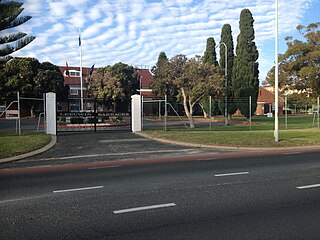
Sexual harassment in the military is unwanted sexual behaviour experienced as threatening, offensive, or otherwise upsetting, which occurs in a military setting.
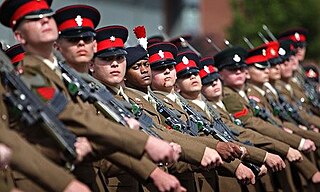
The Army Foundation College recruit abuse investigation 2014–2018 investigated allegations by a group of 17-year-old British army recruits that 17 instructors had maltreated them during their training over nine days in June 2014. It was reported as the British army's largest ever investigation of abuse. Among the allegations were that the instructors assaulted recruits, smeared cattle dung into their mouths, and held their heads under water. The accused were initially charged with 40 counts of battery, actual bodily harm, and other offences; all denied the charges made against them.
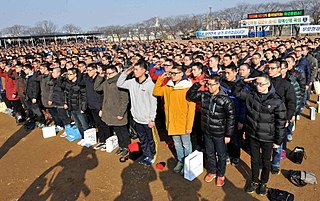
Hazing in the Republic of Korea Armed Forces refers to the widespread hazing and bullying carried out among military personnel, often to conscripts and junior members in South Korea. Hazing has been enforced and encouraged mainly under the pretext of establishing military discipline and hierarchy. Hazing has resulted in a large number of fragging, shooting spree and suicide cases, such cases of suicide are referred to as non-combat casualties by the military.

Sexual misconduct in the British military is unwanted sexual behaviour occurring in military organisations of the United Kingdom, including verbal and physical harassment, assault, and rape.
















